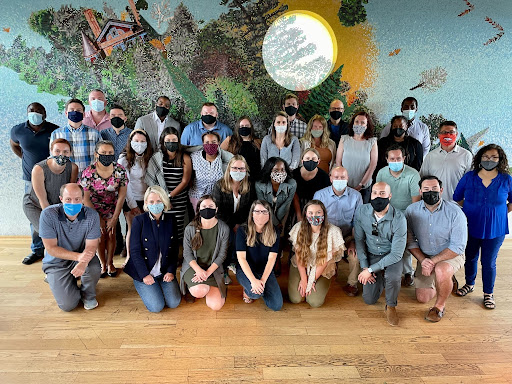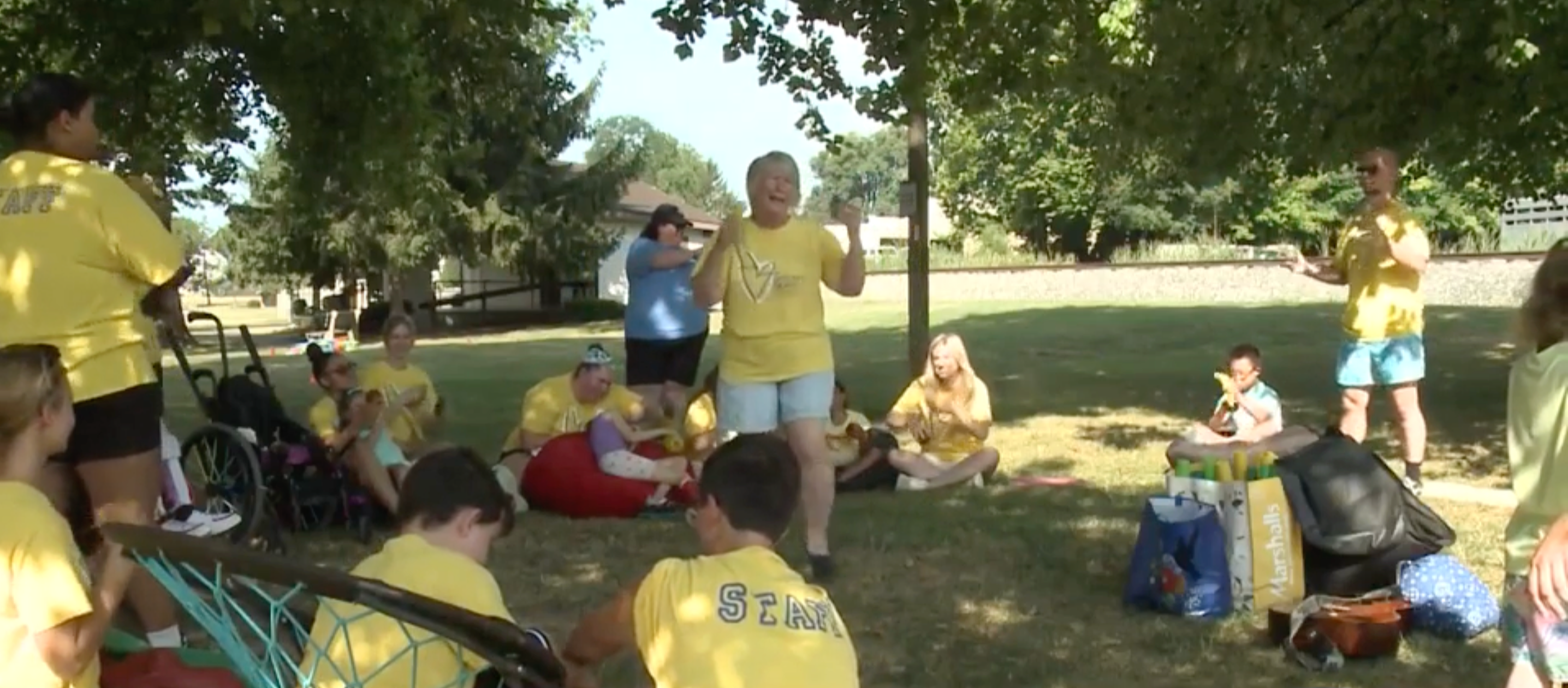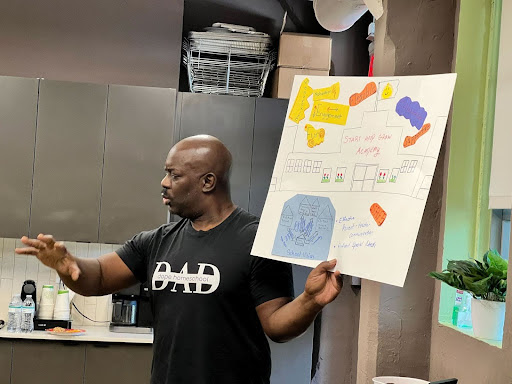Jump to: Top Tasks | From the Field | Key Resources | Moments of Resilience
It is week 82 of our new reality and over a year and a half since school buildings initially shuttered. While nationally the Delta variant appears to have peaked, schools across the country are still grappling with the spread of Covid, including debates over quarantine, vaccination and masking policies.
Last time in The New Reality Roundup, we announced the commitment of states across the 50CAN network to advocate for a family’s right to know how federal stimulus dollars are being spent by districts. We were joined in calling for fiscal transparency this week by the National Parents Union, which launched a new campaign after finding that only one in five families surveyed said they were consulted on how these federal dollars should be spent.
This week, we highlight exciting work on career and technical education (CTE) taking place in Hawaii and take a hard look at shifting quarantine policies across the country as education leaders attempt to balance safety and in-person instructional time.
SUBSCRIBE
TOP TASKS
Learn from Hawaii’s strengthening of CTE programs
“There’s a real opportunity to think about the experiences that students are having and what the value, at the end of the day, is for a K-12 education,” HawaiiKidsCAN Executive Director David Miyashiro tells me. “In Hawaii, one thing that’s been clear is the tremendous interest from parents, students, schools and the government in figuring out how to give students more of an advantage when they graduate from high school, in order to prepare them for the world of work.”
These local conversations led David to put the strengthening and expansion of career and technical education programs front and center in his advocacy work. “There’s a perception in Hawaii that we’re dominated by one major industry: tourism. We know that Hawaiian students can excel in careers that are both more future-proof and crisis-proof. That includes real, hands-on learning in the STEM professions.”
David’s initial focus has led to results. Last year, HawaiiKidsCAN played an instrumental role in passing of two landmark CTE bills: one, which creates computer science coursework in every grade K-12; and a second, which brings accountability and transparency to CTE programs by mandating that programs report out effectiveness data, including how many students graduate with career-ready skills.
As David prepares for the next legislative session, he’s exploring strategies to build upon this success. Up first is working with state leaders to establish a fund that will incentivize schools to offer those CTE programs that are mostly likely to drive economic growth for the state and offer life-changing career opportunities for students.
THE TASK OF THE WEEK IS
Adjust quarantine policies to reduce learning loss
“On Monday, Mayor Bill de Blasio announced two tweaks that probably won’t be forgotten so quickly. He said that schools would require weekly coronavirus testing of unvaccinated students, up from every other week now,” writes James Barron for the New York Times. “He also said that unvaccinated students would no longer have to stay home after contact with a classmate who tested positive — if the exposure occurred when the unvaccinated children were wearing masks and they had remained at least three feet apart from the infected pupil.”
These pragmatic changes in quarantine policy are part of a larger push in schools and districts across the country to try to avoid unnecessary losses of learning time in the third disrupted school year in a row for tens of millions of students.
According to the Center on Reinventing Public Education (CRPE), which is tracking the country’s largest 100 school districts, quarantine policies are continuing to change, with over half of districts now using test-to-stay policies or providing exemptions for those without symptoms.
Communication, however, remains a major concern. CRPE Resident Policy Fellow Christine M.T. Pitts tells us, “We need standardization and coordination within states so that districts are not left to comply with complicated quarantine policies that are confusing to students and parents. Clear communication is central to this. For example, all school leaders and staff across a district should be able to easily answer one of parents’ top concerns: ‘What happens when my child is exposed to a positive COVID-19 case?’ This information must be accessible and digestible for all parents so they understand the details about quarantine policies and any exemptions, like vaccines or COVID-testing.”
The cost of failing to implement and communicate a pragmatic policy is clear. In Maryland, for example, over 16,000 students have had to quarantine since the beginning of the school year, missing between seven and fourteen days.
THE TASK OF THE WEEK IS
FROM THE FIELD
JerseyCAN is celebrating a victory with the signing of S2826/A4594, a law that creates a five-year pilot program that provides schools with greater flexibility to waive key areas of certification, such as GPA or test scores, in exchange for providing mentorship and additional coaching. The new law will aid schools tremendously at filling needed positions in the midst of shortages. The team also launched a search for their next cohort of teacher-leader policy fellows.
NewMexicoKidsCAN, alongside Excellent Schools New Mexico, launched the New Mexico Changemakers fellowship. The advocacy fellowship brings together parents and community leaders to set goals and learn tactics to bring about meaningful change in the school system. Executive Director Amanda Aragon is also calling for statewide testing in the spring to understand the extent of learning loss students have experienced.
GeorgiaCAN’s EPIC Parent Program is proving highly popular, with over 50 parents signing up for the 7-week virtual course in just the first week of open applications. The training curriculum, which is focused on empowering parents to act and advocate throughout the education system, begins next week.
Key Resources
Registration has opened for the Excel in Ed summit that runs November 18 and 19 in Florida. Check out the various sessions being offered and more at excelinedsummit.org.
The Harvard Graduate School of Education hosts a virtual webinar series, “School Choice in the Post Pandemic Era,” every Friday beginning October 8 and continuing into December.
The PIE Network, in celebration of 2021 Hispanic Heritage Month, profiles the leadership of key Hispanic contributors from across the education advocacy sector.
The National Alliance for Public Charter Schools features a new report, “Voting with Their Feet,” finding that charter school enrollment increased by more than 7% last year, the highest growth in the last half-decade.
yes. every kid’s Andrew Clark is out with a new op-ed in The Hill, focused on how the special session in Texas could be used to secure virtual options for all families who want it, as a first step toward pursuing truly student-centered education.
Moment of Resilience

After having gone for nearly two years without an in-person gathering, the 50CAN team met in Washington DC to reconnect and strategize for the upcoming legislative season. We’re proud of this team’s work to navigate through a historically tumultuous era in American education these past 82 weeks and energized for the work ahead to put kids and families first.







